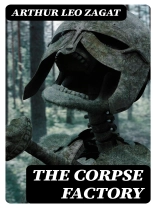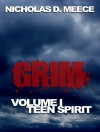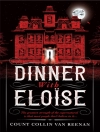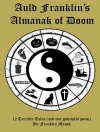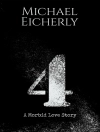In ‘The Corpse Factory, ‘ Arthur Leo Zagat weaves a dark and compelling narrative that delves into the subterranean world of illicit body trade and the moral ambiguities surrounding life and death. This novel, marked by Zagat’s trademark blend of vivid, often grotesque imagery and sharp psychological insight, explores the boundary between humanity and monstrosity within a context of early 20th-century crime fiction. Through a gripping plot that unfolds in a gritty urban landscape, Zagat critiques societal indifference and the commodification of human life, situating the reader within a chilling moral quandary that provokes deep reflection on the value of existence. Arthur Leo Zagat was an influential figure in American literature, noted for his prolific contributions to genre fiction, including crime, horror, and science fiction. His diverse literary background and experience witnessing the complexities of human nature in the industrial age undoubtedly inspired the creation of ‘The Corpse Factory.’ Zagat’s work often reflects a keen awareness of the darker facets of human behavior, which adds layers of psychological depth to his characters and narratives. I highly recommend ‘The Corpse Factory’ to readers interested in insightful crime fiction that transcends mere entertainment, inviting exploration of ethical dilemmas and the human condition. Zagat’s ability to blend thrilling storytelling with profound philosophical questions makes this novel a significant contribution to early 20th-century literature.
Про автора
Arthur Leo Zagat (1896–1949) was a prolific writer renowned for his contributions to the genre of science fiction and pulp magazines during the golden age of pulp literature. Born in New York City, Zagat graduated from City College before embarking on his writing career. Before turning to fiction, he practiced law, a career he eventually left behind to become a full-time writer. Zagat’s literary style is characterized by his vivid imagination, which is evident in his series of short stories and novels that often contained elements of fantasy and horror. ‘The Corpse Factory, ‘ one of his works, exemplifies his penchant for weaving macabre themes and suspenseful plots. Zagat was best known for his ‘Tomorrow’ series and the ‘Doctor Satan’ stories, which appeared in ‘Weird Tales’ magazine. He also contributed to ‘Argosy, ‘ ‘Amazing Stories, ‘ and ‘Dime Mystery Magazine, ‘ showcasing an ability to create mesmerizing narratives across different publications. His work is still appreciated today for its classic pulp fiction qualities and its reflection of the era’s popular culture. Despite the volume of his work, Zagat never achieved the same level of lasting fame as some of his contemporaries, but he remains a significant figure for enthusiasts of early science fiction and pulp literature.
